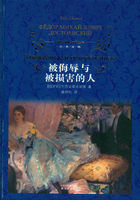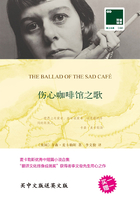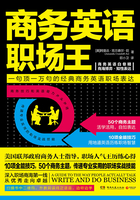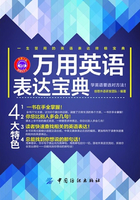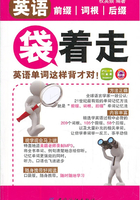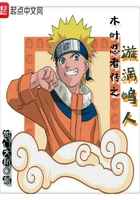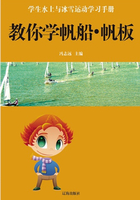Fowr the sake of collective survival, in Humen on the borderith Hong Kong some went so far as to take rice straw to the capitalists in exchange for fertiliser; a crowd gathered angrily at the Guangzhou train station with only one thought - to flee to Hong Kong; the Cantonese tire of the Cultural Revolution, partly thanks to the proximity of Hong Kong and Macau; the flow of people away from the mainland continues even after the Cultural Revolu-tion draws to an end . . .
17
During Guangzhou's period of recovery, as it threw itself into making up the ground lost over the previous years, there came yet another foreboding portent of trouble ahead: Mao Zedong had begun to spread the slogan "Never forget class struggle" amongst cadres of all levels. Many grassroots cadres in the villages could guess what was coming. They didn't know the reason behind it, but they could identify the general pattern: as long as there was food, there would be Movements. The whole Party got behind the rein-tensified class struggle, leading to the "Four Cleanups Movement".[1] It spread like wildfire throughout the country, in the cities and the provinces. Mao wrote a worrying admonition to spur the move-ment on: if class struggle were not always at the forefront of the Party's agenda "whether it takes a few years or a few decades, a restoration of anti-revolutionary authority will appear throughout the country, and the Party of Marxism-Leninism will become a revisionist Party, a fascist Party, and all of China will change colour."
As the "Four Cleanups" Movement began to take hold in Guang-dong, Xie Fei's work in the South China Bureau's Research Unit became significantly more complicated. For example, one day, in front of him was an internal report passed up from the lower levels, which had to do with the new class struggle movement. An investigation had discovered that Humen People's Commune in Dongguan County had made little to no effort to deal with the problem of people running to Hong Kong; in fact, it had established business relations with the British colonial government. A group of commune members, led by the commune's vice-secretary, a certain Mr. Chen, were using the cover of a distribution company to ship rice straw across to Hong Kong in fishing boats, sell it to the Jockey Club, use the money to buy fertiliser and bring that back to Humen, sharing it out amongst all the production brigades in the commune.
Not only were those involved in the trade exhibiting a sophisti-cated division of labour; whilst over in Hong Kong they were living it up! Moreover, the Jockey Club was one of the most degenerate, exploitative institutions of the bourgeoisie, a tool of the British colonial government to deceive and enslave the labouring classes of Hong Kong through gambling, and yet here a group within a People's Commune had the gall to act as the accomplice of the capitalists! The existence of this affair was proof that the bour-geoisie was making savage inroads into our country. They'd already taken a few grassroots organisations and cadres out of the hands of the proletariat . . .
Xie Fei furrowed his brow, closed the report and walked directly into another offce, where the leading comrade was waiting to hear his opinion. What Xie said made him do a double-take. His opinion was that Mr. Chen had not acted as an "accomplice" to anything, rather that in an attempt to increase production and thereby reduce the allure of Hong Kong, he'd come up with a new policy that merited further attention and possibly expansion. Of course, the quantities, materiel and personnel involved would all need strict supervision to keep the risk of problems or complica-tions as low as possible . . .
"Are you saying that you don't see a problem with this?" The senior comrade stared at him, cutting short his analysis.
"Lenin recommended turning wealth that exists outside one's borders to one's own benefit during the Russian civil war, even the money of American capitalists if it serves a constructive purpose, is effective at dealing with economic problems and develops production. There are examples from our own Party's history as well: in the Jiangxi Central Soviet, Comrade Mao Zemin supported trade with Chen Jitang, exporting the area's rich tungsten reserves to Guangdong and strengthening the Soviet's finances; during the War of Liberation, the Guangdong-Jiangxi-Hunan base often traded livestock and crops with Hong Kong for the medicines, cloth and shoes we needed, which kept the area fighting and allowed the Guangdong Liberation campaign to continue . . . " Xie continued, courageously and prudently, but his superior cut him off with a dismissive wave of the hand, assigning him to a different document.
As the tide of the "Four Cleanups" swept China, there were people in Humen, on the border with Hong Kong, who were willing to commit one of the most serious crimes then possible, trading rice straw for fertiliser with Hong Kong. The fact that this was happening left a deep impression on Xie Fei. Somehow, Mr Chen, the vice-secretary of Humen Commune who was in charge of the whole operation, was miraculously never criticised or reassigned during the "Four Cleanups". Once the Cultural Revolution began, however, his luck ran out.
As Guangdong got tangled up in political movements that followed one after the other and gave it no time to pause and breathe, Hong Kong suddenly took on an indispensable impor-tance as China's only window on foreign trade. The "Four Small Dragons" of Asia[2] began to take flight, and their economies, based around exports and processing export goods, developed rapidly. Hong Kong's manufacturing industry quickly got in on the boom, and a few enterprising small businessmen set up factories and drew in labour on a large scale. Fortunes were made overnight in plastics, clothing, metals, electricity and other industries, with property development and finance following close behind them. The USA was using Hong Kong as a logistics base for the Vietnam War, further boosting the local economy. Everything suddenly fell into place, and Hong Kong entered its second period of drastic economic growth during the 1960s and 70s.
In those two decades, it became the richest region in all of Asia, in stark contrast to the rest of Guangdong, just across the water, which was merely another poor province of China. During the "three years of natural disasters", Hong Kongers had sent huge quantities of lard, rice, noodles and various other non-staple foods over to their friends and relatives on the mainland, a clear sign of how well the city was doing compared to Guangdong's desperate poverty. By this time Guangdong had sunk to a lower-middle development ranking amongst China's provinces, whilst Hong Kong was almost half as rich as the entire rest of China, with even greater foreign currency reserves.
The British who ran Hong Kong had no interest in China's successive political movements; what vexed the colonial offce was the endless flow of people trying to get across the border. Whether crossings were made by desperate individuals or profes-sional smugglers, the attitude of the colonial government towards these uninvited guests was a mixed one. On the one had the steady stream of mainlanders fleeing to the "Free World" was a validation of the "weaknesses" of the Communist system, as well as a pool of new, cheap labour to fuel the economic boom; on the other, there were too many people coming over, which was making things more diffcult for those already living like princes on the British side of the border. All the same, they flung their gates open wide, accepting all comers. No-one was turned back; they encouraged and facilitated all manner of illegal emigration.
On the 6th of June 1962, a crowd gathered angrily at the Guangzhou railway station. They had only one thought: to flee to Hong Kong! Whilst the acute food shortages of previous years had largely ended, the lives of the masses were still very hard. A shocking rumour began to spread all through Guangdong: there was going to be an amnesty in Hong Kong to mark the British queen's birthday, and for three days the British side of the border would be open to anyone, no passport necessary! And so, a crowd of people, not even sure if the story was true or not, descended young and old on the Guangzhou railway station, which back then was on Baiyun Road, jostling towards the front, clambering onto trains headed for Hong Kong and Shenzhen. Soon Baiyun Road was blocked by thousands of desperate people, an event which shocked all of China.
Zeng Sheng, former commander of the East River Column and by this time vice-chief of the Guangdong provincial government and mayor of Guangzhou, rushed to the scene with other leading governmental cadres, their faces covered, pushing through the mass of people. Whilst some considered this a serious counter-revolutionary crime which needed ruthless suppression, Zeng Sheng did not agree. The reason for such behaviour was simple. As Mencius[3] said over two thousand years earlier:"A people is bounded in, not by the limits of dykes and borders." If life were better in Guangzhou than in Hong Kong, would there be so many thousands of people risking everything to get across the border? But as the crowd got bigger, police cars had been overturned, off-cers had been beaten up, undesirables were in amongst the crowd inciting them; it could get out of hand in an instant.
Zeng had held a meeting with the head of Guangdong's govern-ment, Chen Yu, and other leaders, where it had been decided to impose martial law. The local military had mobilised troops for urgent deployment to Guangzhou at the request of the civil off-cials, as the city government sent out its own people to persuade the crowd to disperse peaceably and denouncing the rumour that there was a passport-free amnesty in Hong Kong. Thankfully, the crisis was defused.
"Fleeing to Hong Kong" had become a commonly-heard phrase in Guangdong ever since Liberation. It should be clear from that how common an occurence it was in the days before the Cultural Revolution. Even in the relatively well-off Pearl River Delta, huge numbers made the trip, most of whom had friends and relatives there. Once they arrived it was easy for them to find work and integrate into the society. Vast crowds fled there from East Guang-dong too. Their reason for going barely needs to be said: poverty and malnutrition.
During the three years of natural disasters, the stream of migrants became a flood of refugees. Over the dozen or so years since Liberation, hundreds of thousands had crossed the border. According to incomplete statistics, by the time the Reform Era began more than a million people had fled to Hong Kong in search of a better livelihood, by legal or illegal means. They went via nearby villages; in some cases the entire villages fled, leaving behind only their local Party secretary. After they arrived, however, matters were more diffcult than expected. Many people were unable to find work straight away and so ended up on the streets, which became a major social problem in the city. The slums they knocked together for themselves became a hindrance to Hong Kong's urbanisation and modernisation, and it took until the Seventies for the issue to be sorted out.
The people who flowed steadily over the border for roughly a dozen years became a distinct community, referred to disparag-ingly by locals as "Ah-tsan" after an unsophisticated, ignorant "mainlander" character who was the butt of jokes in a popular Hong Kong television show. Although it was diffcult for them to get by in the big city and they made up the lowest social stratum, with the natural tenacity, shrewdness and knack for survival of the Cantonese, they relied on their numbers throughout Kowloon and the New Territories, and the common language and culture that bonded them to the rest of the city, to make their way in it. Through years of hard, unstinting work, they became one of the principal sectors of modern Hong Kong society.
During the years of the "Four Cleanups", preventing people from fleeing and capturing those who tried proved to be no deterrent. One of the metrics by which the local work of grassroots organ-isations was assessed was the number of people who fled. Setting up "frontier defences" was assigned as one of the main tasks of coastal counties in the Pearl River Delta, and treated as seriously as if it were defence against an invading enemy! For cadres great and small in Guangdong, particularly in the Pearl River Delta, the issue of people fleeing to Hong Kong was a sharp sword hanging above their heads.
18
On the 8th of August 1966, the CCP Central Committee formally announced the mobilisation of the proletariat class for the "Great Cultural Revolution", which swept across the Guangdong like a typhoon.
Comrade Tao Zhu, who enjoyed such prestige in Guangdong, was suddenly recalled to the capital. All at once, a slew of titles were conferred on him: he became a member of the Politburo Standing Committee, head of the Central Publicity Department, Consultant to the Cultural Revolution Group . . . Then, on the 18th of August, when Mao Zedong appeared above Tian'anmen Square and inspected hundreds of thousands of Red Guards for the first of many times, Tao stood alongside Chairman Mao, Lin Biao and Zhou Enlai - he'd become the 4th-highest offcial in the country!
As it was a revolution that had been declared, and a Great one at that, one might have expected it to be a day of rejoicing amongst the millions-strong revolutionary masses. Yet on this great day of celebration Guangdong, so often the first to take part in a new general mood, made no grand, impressive displays, instead marched quietly in step with Beijing's Red Guards. Compared to other regions, Guangdong and the South China Bureau's admin-istrative area had a fairly easy time of it in the early days of the Cultural Revolution with Tao Zhu's support. He was the number four man in all of China, and most importantly identified by name as "a leader of the proletariat".
The good times didn't last. in December 1966, a Red Guard team rushed to Guangzhou from Beijing. Although they were few, they had travelled down for no trifling matter. They had come to Guangzhou to fan the flames of revolution and bring the acute political consciousness of Beijing down to the South. Their first port of call was the Yangcheng Evening News which they ordered to change its name to the Red Guard News, a direct attack on the South China Bureau.
The next move of the Red Guard team, made up of students from Beijing's Peking and Tsinghua Universities, was to unite with the students of Guangzhou's Yat-Sen University. One evening they all converged on the premises of the renamed Yangcheng Evening News to shut it down, almost starting a fight with the citizens who'd shown up to protect their paper. Tao Zhu was away from Guang-dong at the time, but even had he been present despite his high rank would have had no means of saving the newspaper that he so loved. That was what it meant to be number four during the Cultural Revolution.

